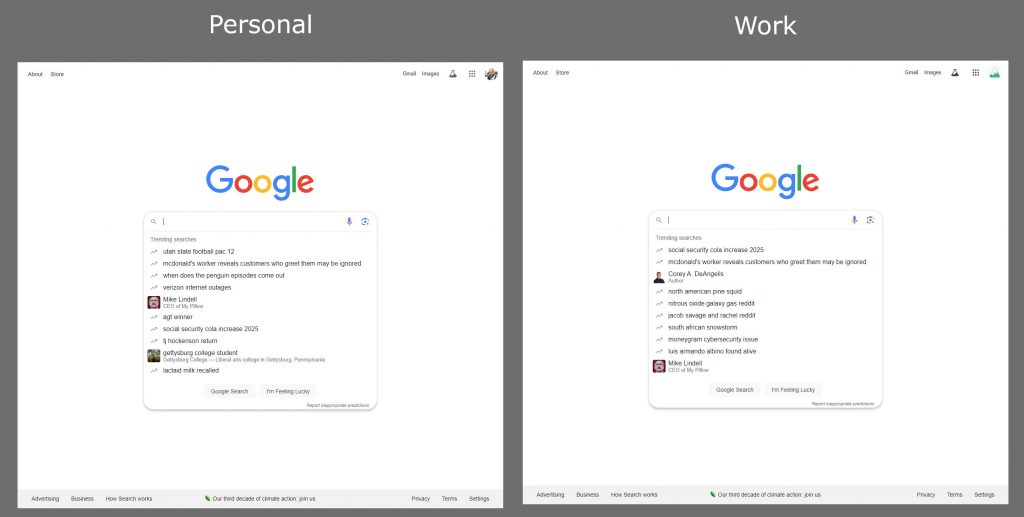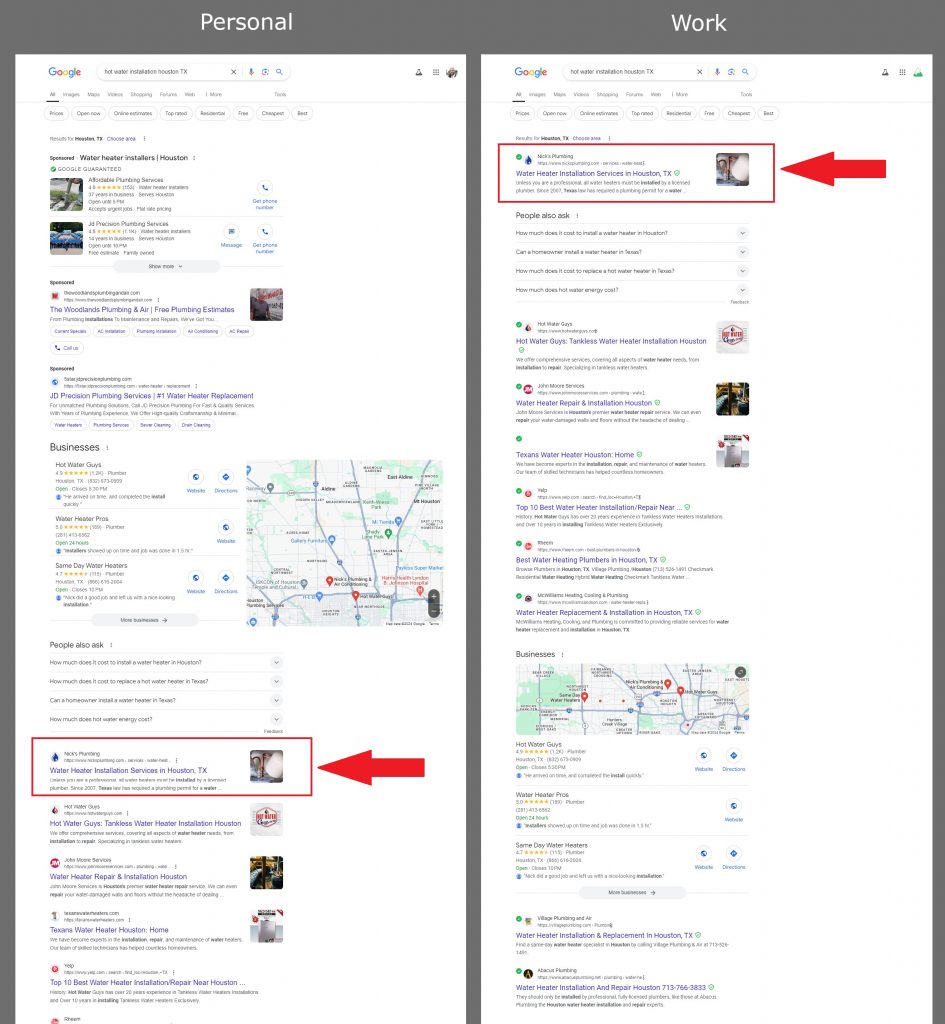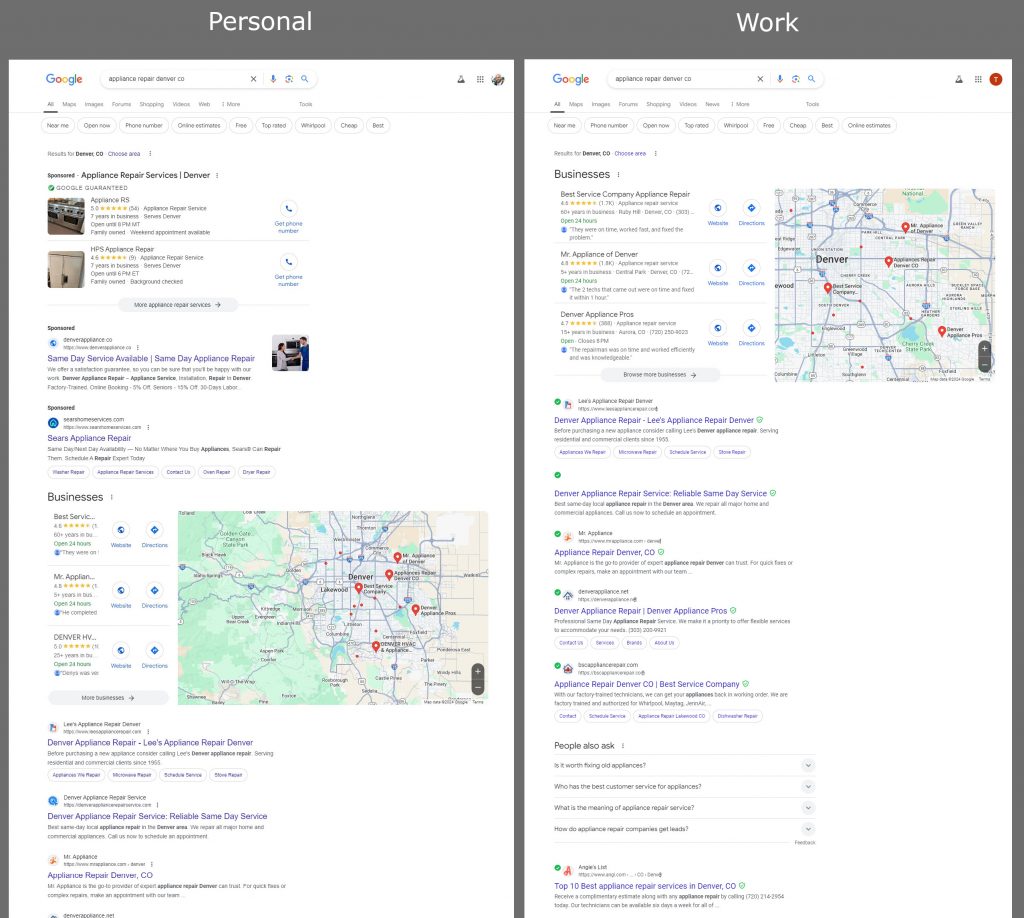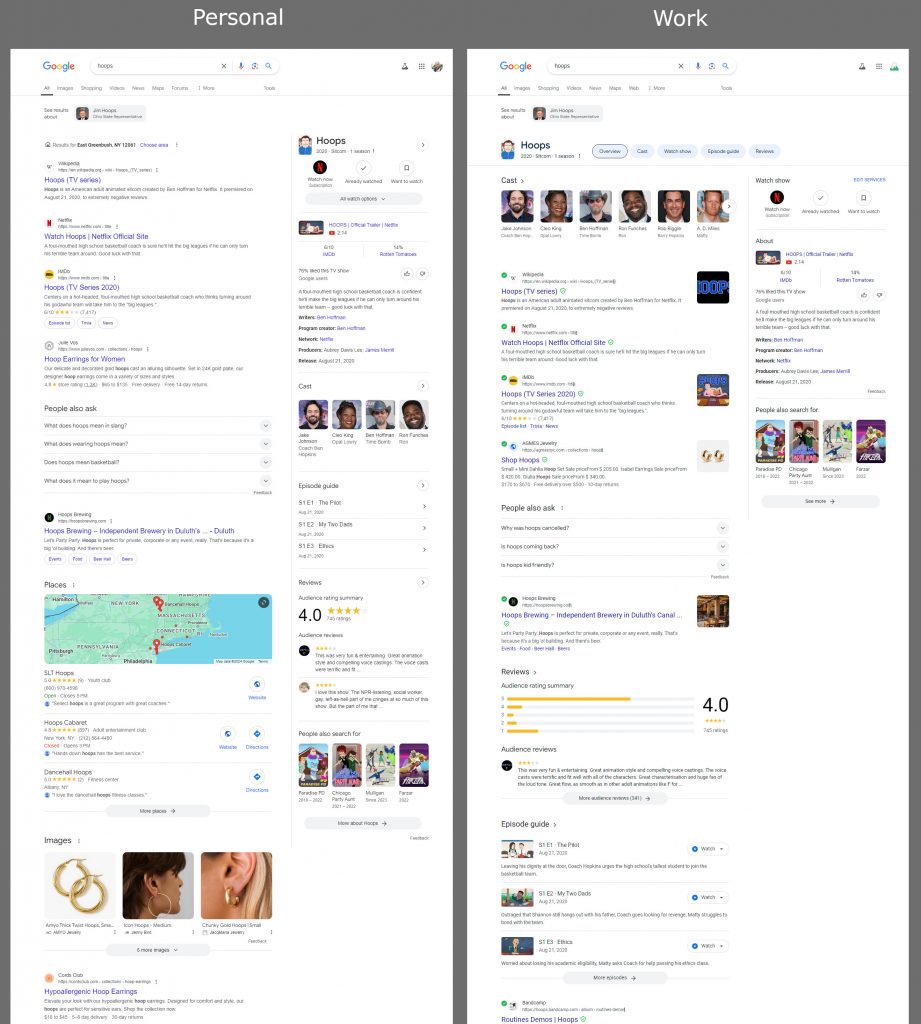Your search results are not my search results because Google shows significantly different results to each user. Failing to understand the extent of this personalization is leading many people to be taken advantage of, and I want to help put a stop to that.
We all know that ranking highly in Google’s search results drives more traffic, which then drives more sales. Unfortunately, some sales reps are more concerned about their own profits than being transparent and manipulate search results in a way that essentially misleads you about your true rankings. One way they do this is by performing a search during a video call or in a pre-recorded video to “prove” that your rankings are strong.
It seems foolproof — you just saw it happen with your own eyes. But what you might not realize is how easy it is to manipulate those results to create a narrative that the salesperson wants you to believe.
Let’s break down how this works and why it’s so important for your business to understand.
The Personalized Search Illusion
Google is fantastic at delivering information tailored to us individually. It tracks our preferences, our search history, and even takes location into account when displaying results. But that also means that Google’s search results are highly personalized. What you see on Google isn’t necessarily what your customers see, and that’s where the problem arises.
If a salesperson is trying to impress you by showing how well your business ranks, they’re unlikely to explain how they’ve been searching for your business repeatedly over the past few months. Google, in turn, learns to prioritize your website in their search results because it assumes they have a strong interest in it. So, when they type in a hyper-specific term like “professional tankless hot water installation service Highlands, TX,” your business appears to rank highly. You, as the business owner, feel reassured.
But what you might miss is that the town mentioned is very small, the search term is overly-specific, and the rep’s search history is packed with similar terms. All of this ensures that your business shows up prominently…for him/her. The issue is that potential customers, who don’t have this search history, may not have the same experience. In fact, they might find you buried on page 4, which is about as helpful as an ice cream shop on Pluto.
Real-Life Examples of How Different Search Results Can Be
To show how much search results can vary, I ran searches using two different Google accounts — one was my personal account, and the other was a generic work account with very little search history. Even though I searched for the exact same keywords, the results were noticeably different.
It Starts With Search Suggestions
Personalized search doesn’t just impact the final results — it even affects the suggestions you see when you first click the search box. Take a look at the difference between the suggestions on my work account (left) versus my personal account (right)… and I hadn’t typed a single thing yet!
If you don’t believe this is powerful stuff, check out Robert Epstein’s research at AIBRT which exposes how much Google sways our elections: https://aibrt.org/downloads/EPSTEIN_2022-GOOGLE’S_TRIPLE_THREAT.pdf
Hot Water Installation Houston, TX
For this example, let’s pretend you’re the owner of Nick’s Plumbing, and I’m the sales rep for your marketing company. You’ve called me, frustrated, because you’re not happy with your current rankings on Google. In response, I reassure you that your rankings are excellent. To prove it, I perform a quick search for “Hot Water Installation Houston TX.”
What I didn’t tell you is that I ran this search while logged into a specific account, carefully curated to show you the results I want you to see. According to the results on this account, you’re in the top spot! See, I told you I’m the best marketer out there…
However, if I had used my personal account, you’d be a lot less impressed. To find your result, we’d have to scroll past two paid ads, then two more sponsored listings, followed by the 3-pack of local results, then past the “People Also Ask” section. Then, you’d finally see your business.
Now, it’s worth noting that Nick’s Plumbing is still the first organic result — which is great! But think about which result any sales rep would choose to show you. Of course, they’d pick the search result from the carefully chosen account. But the personal account’s results actually provide a much more realistic view of what your customers are likely to see.
Appliance Repair Denver, CO
We see a similar pattern with this search. The personal account displays four ads first, then the 3-pack, followed by the organic listings. In contrast, the work account skips straight to the 3-pack, showing a more streamlined result.
While the difference isn’t as stark as in the previous example, the layout still presents quite differently depending on which account is used. If the rep doesn’t explain this to you, you’re left with a skewed impression of your ranking performance.
Random word search “hoops”
For this search, I picked a random word with no context to see how differently the results would come up.
Notice how the two sets of results are laid out. There’s a lot of common content between the two, but the order and presentation vary. The work account displays a horizontal carousel of cast members for a show called “Hoops” at the top of the page, while the personal account pushes this information further down and to the right-hand sidebar.
Additionally, the personal account shows several sections that the work account doesn’t:
- Map listings
- Image search results
- Shopping results
- YouTube listings
Depending on the narrative I want you to believe, I can easily choose the results that tell the story I want to sell you.
The Takeaway: How to Protect Yourself From This Misleading Tactic
The key takeaway is simple: don’t blindly trust the search results that sales reps show you. Here’s how to protect yourself:
- Test in Private/Incognito Mode
- To see less personalized search results, use Google’s Incognito mode (or private browsing mode in other browsers). While this won’t completely eliminate personalization, it can provide a clearer view of how your business appears to new visitors.
- Use Multiple Devices and Locations
- Check your rankings across various devices (tablet, phone, laptop) and using different internet connections (turn WiFi off on your phone to use mobile data, for example). Ask friends or colleagues in different locations to search for the same terms, which will give you a broader perspective of how your business is ranking.
- Leverage Tools
- Several tools can help you obtain more generic search results. One option is our AdTrax service, which uses multiple proxy servers to anonymize results and tracks those results over time. While no tool will give you a perfect, unbiased result, this approach provides a better way to measure the effectiveness of a campaign over time by showing minimally-biased results and the trends over time.
- Ask Questions
- If a sales rep shows you results that seem too good to be true, ask some tough questions. How did they perform the search? Was it in Incognito mode? What does their browsing history look like? Transparency is crucial, and any reputable SEO consultant will understand the need for these questions.
Conclusion: Be Vigilant About Personalized Search
As a business owner, it’s crucial to understand that Google’s personalized search results can be easily manipulated. Some salespeople use this to mislead you into thinking your rankings are better than they are. Just because you see your business ranking highly in their search doesn’t mean that’s what your potential customers see.
Stay informed, be proactive, and make sure you’re thoroughly testing your search rankings before drawing conclusions about your SEO success. By understanding these misleading tactics, you’ll be better equipped to assess your business’s true performance in Google search results.






